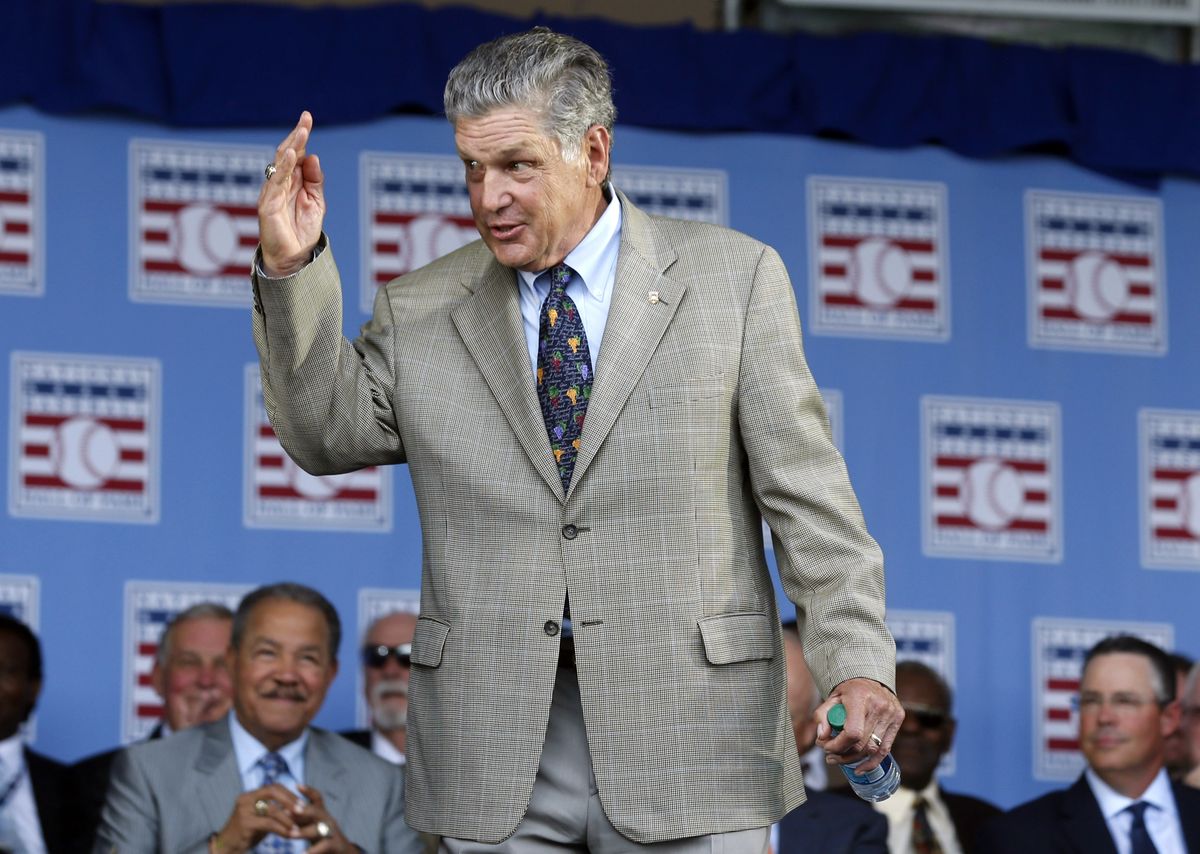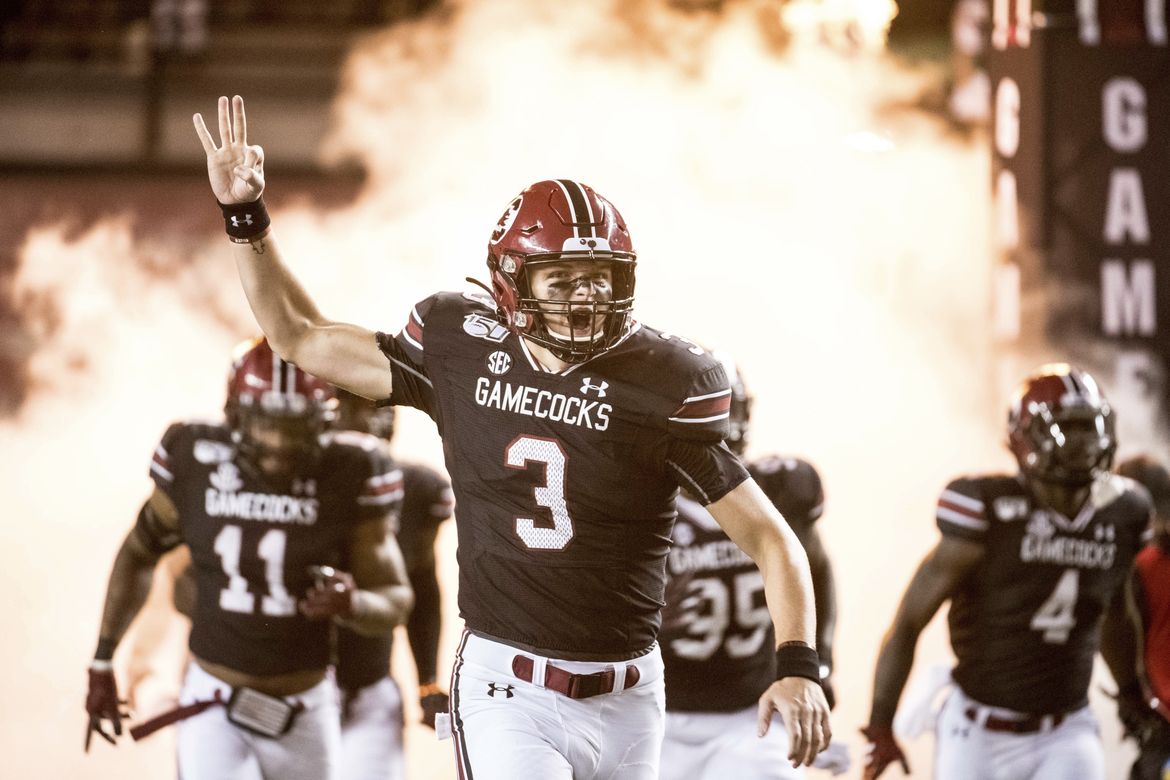A Grip on Sports: Tom Seaver served as baseball’s best pitcher, as an ambassador for the game and as link to a time long past

A GRIP ON SPORTS • Tom Terrific died earlier this week and with him, in some ways, so did the promise of youth.
•••••••
• For certain American generations there was no higher calling, athletically, than professional baseball player. From Babe Ruth to Willie Mays and beyond, baseball stars shined bright in dreams of children from Portland, Maine to Portland, Oregon.

The luster has dulled a bit in recent decades, but in the late 1960s, it was still as bright as ever, especially in the light that emanated from New York. And Hollywood.
Tom Seaver had roots in both.
A son of Fresno, Calif., Seaver pitched in junior college there before catching Rod Dedeaux’s eye and spending a year at USC. As far as I can recall, he was the first of the promising college pitchers, drafted out of junior college by the Dodgers and USC by the Braves.
He delivered on that promise, albeit following a convoluted process that had him awarded to the Mets after baseball’s commissioner stepped in. In 1967, he was Rookie of the Year, winning 16 games. And that was only the beginning.
But before we get into his future, let’s pause for a second.
In 1966, Sandy Koufax was baseball’s dominant pitcher. He was also the face of the Dodgers and of the pitching-dominated era. He was special. My dad thought so, anyway. So on the Fifth of July that year, he took me to Dodger Stadium to watch the best pitch against the Reds. And Koufax was good enough, even with Pete Rose and Tony Perez in the lineup facing him. The left-hander won his 15th game of the year (against three losses), scattered 10 hits and struck out eight in a complete-game, 1-0 victory.
Workmanlike.
That brings us to 1967. Koufax had retired, laid low by a bad elbow. Bob Gibson, who would take over the mantle as the baseball best, was dealing with injuries. The throne was vacant. So who was going to be the best of the best down the road?
My dad had an idea. And in late September, he rewarded me with a late-night trip to watch the Dodgers play the Mets so I would know as well.
Tom Seaver was pitching. My dad wanted me to see the next big thing. He was sure of it. His acquaintance, Dedeaux, had told him Seaver was the toughest pitcher he had ever coached. And my dad, who valued toughness above all else, probably looked at the 11-year-old sitting next to him at Dodger Stadium and hoped some of that toughness would rub off.
We sat in great seats – there were less than 10,000 in the stadium that night, as the front-running L.A. fans couldn’t stand their Dodgers being 16 games under .500 – and watched Seaver pitch.
He didn’t win – a two-run triple in the seventh by opposing pitcher Claude Osteen was his undoing – but Seaver’s overpowering fastball made an impact. My dad pointed out how Seaver, not a huge man at 6-foot-1 and 195 pounds, used his legs to generate power and save his arm.
I didn’t know it at the time, but Seaver’s drop-and-drive style would revolutionize pitching for a few years. And with it he would dominate the National League, leading the Miracle Mets to a World Series title two years later and then, after leaving New York, helping the Reds ruin more than a few Dodger nights – and seasons.
You’ll find more stirring tributes to Seaver out of New York – he is the Mets’ equivalent to what Ken Griffey Jr. is to the Northwest, down to the messy break up and trade to Cincinnati and the late-career return – but none that come deeper from the heart.
My dad was my baseball hero, more so than the guys I worshipped on the field. He knew the game inside and out, and his observations were gold. If he said something was going to happen, it usually did. If he said someone was going to be great, they always were. He seemed to be able to see into the future of the game. I learned to listen. To not doubt. To sit with him, either at the ballpark or the living room, and take his pronouncements as gospel.
But none stick in my mind more than the blessings he laid on Seaver. We went to the stadium that night, a school night with an 8 p.m. start, just because he wanted me to experience Seaver before he came into his glory – and before everyone jumped on board.
I never forgot. As Seaver aged and changed, my perception of him never did. Even after I had a chance to meet him before a Dodger game vs. the Reds in the early 1980s, it still didn’t, even if he had the grizzled veteran act down pat.
After all, my dad had anointed him. That was enough.
• How good was my dad at predicting baseball outcomes? Take this little note as evidence. In 1968, Denny McLain won 30 games for the Tigers. He and I witnessed his 29th win from the Anaheim Stadium cheap seats. But before the World Series got underway, my dad told me Mickey Lolich – who, you might ask; I know I did – was going to be the difference for his Tigers, not McLain. Was he right? Look it up.
•••

WSU: No, you are not going to get a chance to watch the Cougars play football this fall (or volleyball or anything else). But you might have a hankering to watch college football with a Washington State connection. No problem. Theo Lawson has done all the research for you. He’s got every connection you could ever want in this story. … Around the Pac-12 and the nation, this college football season will be the most uncertain one of our lifetimes. … It looks as if the response to the coronavirus may play a role in the future of college football, though I’m not sure it will destroy recruiting for the Pac-12 and Big Ten. (Honestly, why wouldn’t a parent want their child to play for a coach who can point to the past few months as evidence they will treat their son as a person, not a commodity, as seems to be the case elsewhere?) But it might destroy Larry Scott’s Pac-12 future. … The conference is encouraging its athletes to register and vote. Washington and Oregon State seem to be at the forefront of this. … Speaking of the Beavers, the 2000 season flashback continues at the Gazette-Times. … There is no better offensive lineman in the conference (or the nation more than likely) than Penei Sewell. He came a long way to star at Oregon. … Utah fans are looking for a football fix as well.
Gonzaga: In his recent video podcast appearance with Andy Katz, Bulldog coach Mark Few opened up about his relationships with recently departed coaching legends John Thompson, Jr. and Lute Olson. Jim Meehan passes along what Few had to say in this piece.
Preps: A movement among Washington athletes aimed at getting the governor to change his mind about fall sports culminates today in a march on Olympia. Whether it gets anywhere, in the philosophical sense, is debatable.
Chiefs: Sooner or later, hopefully, Spokane will begin playing hockey games in the Arena. And, also hopefully, fans will be allowed to watch. The people in charge of making the experience a safe one, not only with the Chiefs but any indoor arena in the Spokane area, talked with Dan Thompson recently about their planning.
Mariners: Taylor Trammell got a chance to show his abilities yesterday. He’s got some. … Trammell is part of a decent haul at the trade deadline.

Seahawks: It seems as if the Hawks are willing to dip into their past to help the present. … The future might just be embodied in DeeJay Dallas, the rookie running back who wears Kam Chancellor’s number. … It certainly isn’t a good year for rookies to showcase what they can do. … Jordyn Brooks has expectations. … Jarran Reed has met expectations, but only at times. … The same can be said of Tre Flowers. … The best NFL coach of my youth? That would be Green Bay’s Vince Lombardi. Charles Apple has a Further Review about Lombardi, made accessible on the web by Tyler Grippi.
Sounders: For the first time in a long time, Seattle played an actual road match, as fans were allowed to attend the battle in Salt Lake City. And the crowd may have helped Real Salt Lake earn a late 2-2 draw. … Portland seems to have left its defense in Orlando.
•••
• OK, you don’t have to look up the 1968 World Series if you haven’t already. McLain lost twice but the Tigers still won. Mainly because Lolich won three games, including game seven with Gibson pitching for the Cardinals. Is it no wonder I thought my dad was the true Carnac the Magnificent. Until later …